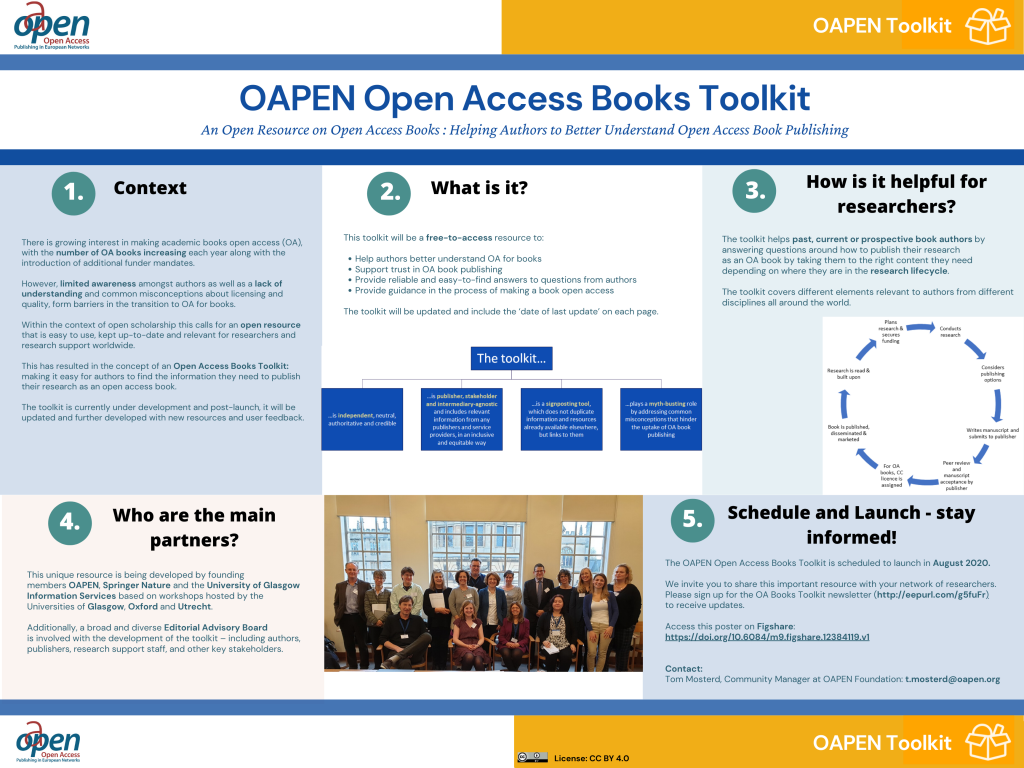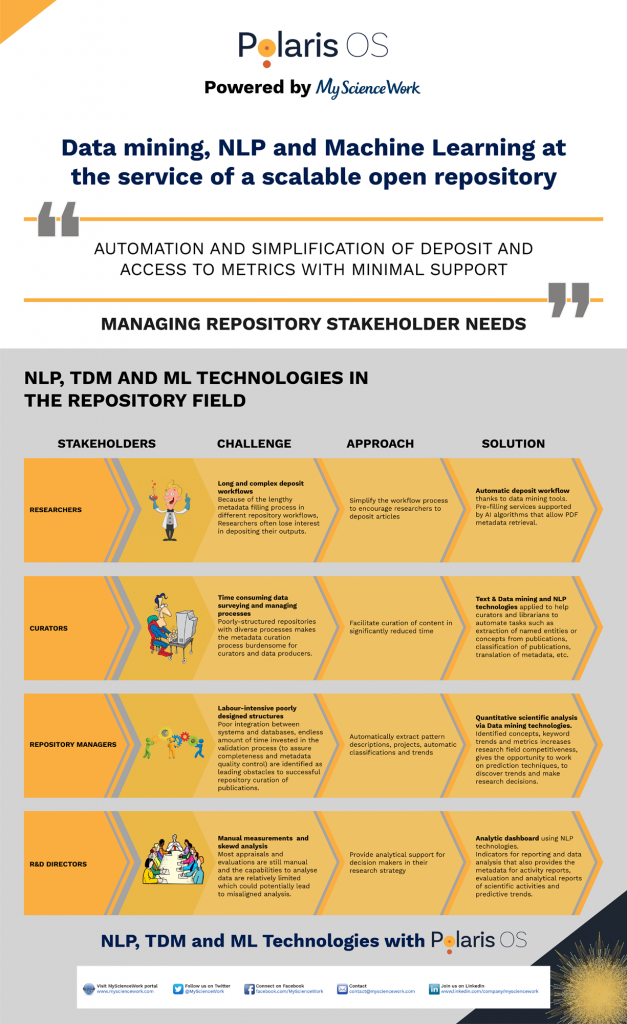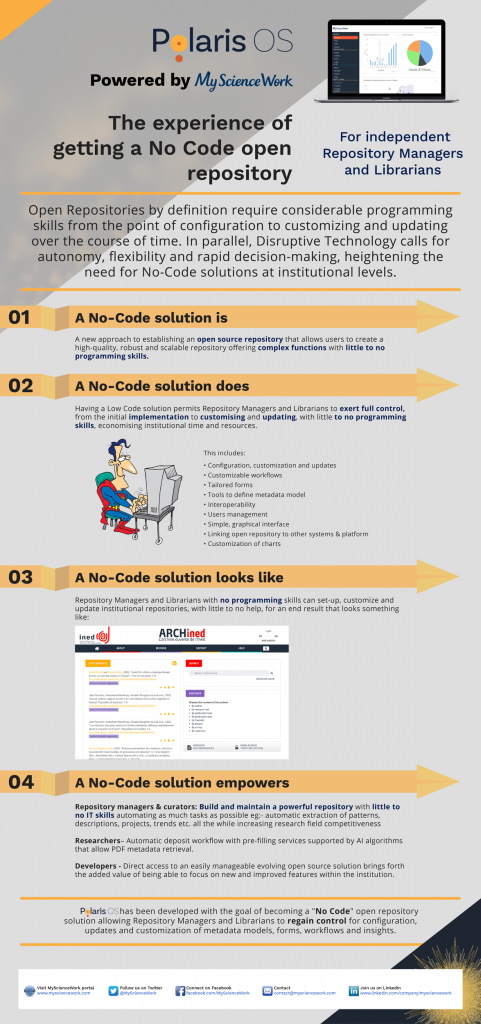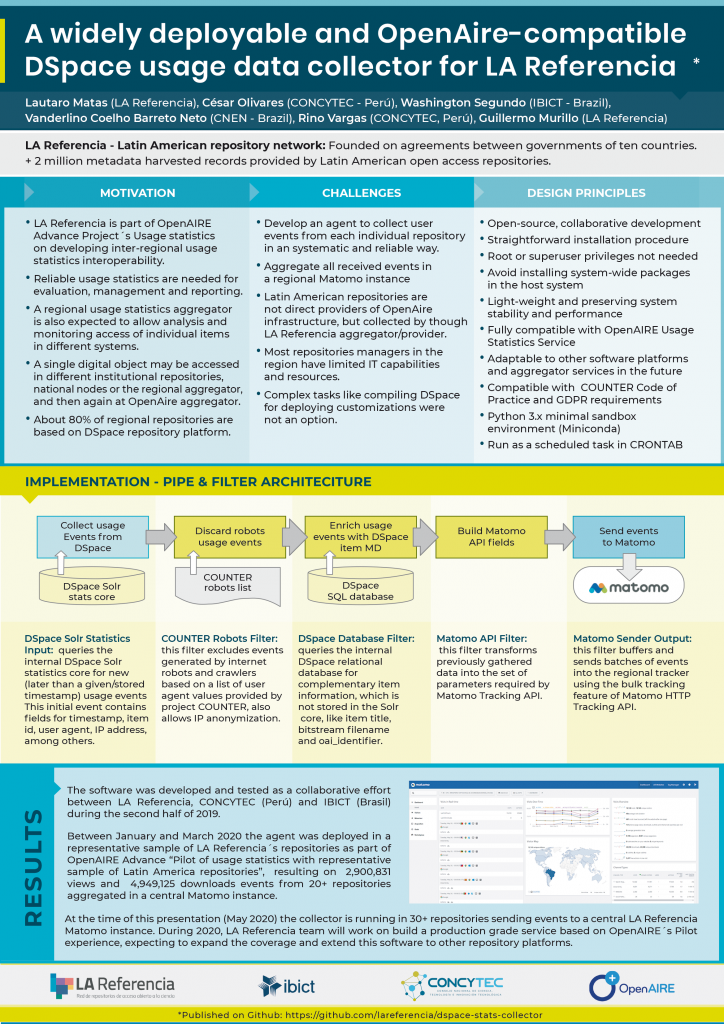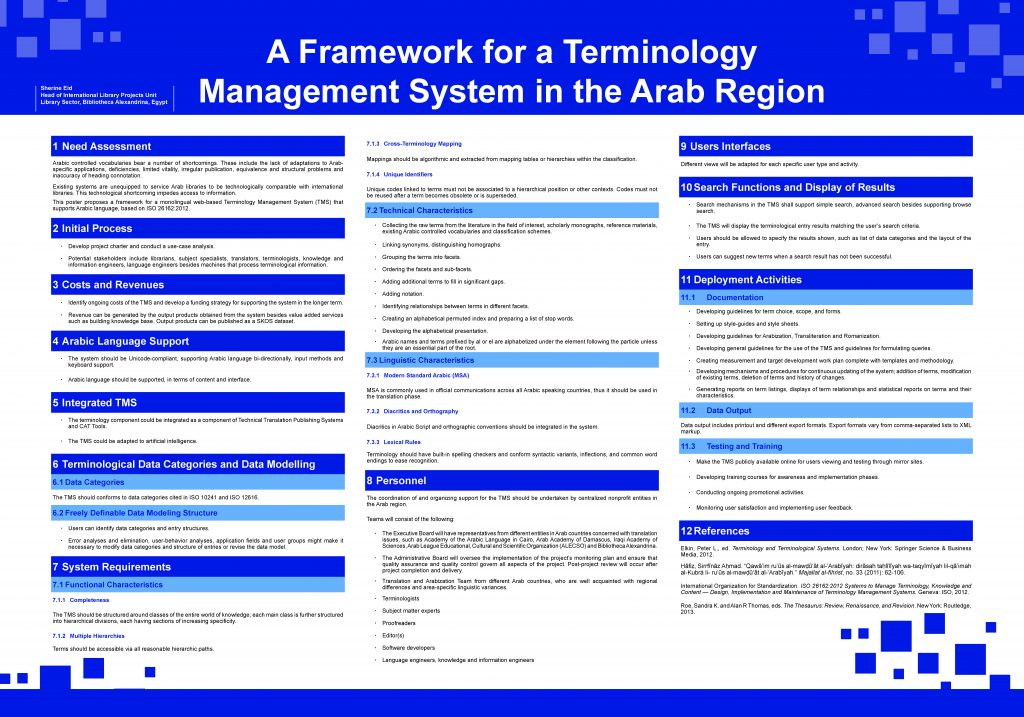This poster is part of the OR2020 Virtual Poster Session taking place in the week of June 1-5. We encourage you to ask questions and engage in discussion on this poster by using the comments feature. Authors will respond to comments in this week.
Author:
Tom Mosterd
Poster description:
There is a growing interest in making academic books Open Access (OA) with the number of OA books increasing each year along with the introduction of additional funder mandates. However limited awareness amongst authors as well as a lack of understanding and common misconceptions about licensing and quality, for barriers in the transition to OA for books.
Within the context of open scholarship this calls for an open resource that is easy to use, kept up-to-date and relevant for authors and research support worldwide. This has resulted in the concept of an Open Access Books Toolkit.
(Click on the image below to view and again to enlarge)
About the presenter:
Tom Mosterd is the Community Manager for the Directory of Open Access Books (DOAB) and OAPEN. He is responsible for communication plans, for managing the SCOSS fundraising campaign for both DOAB and OAPEN as well as several community-oriented projects, including the OA Books Toolkit.


